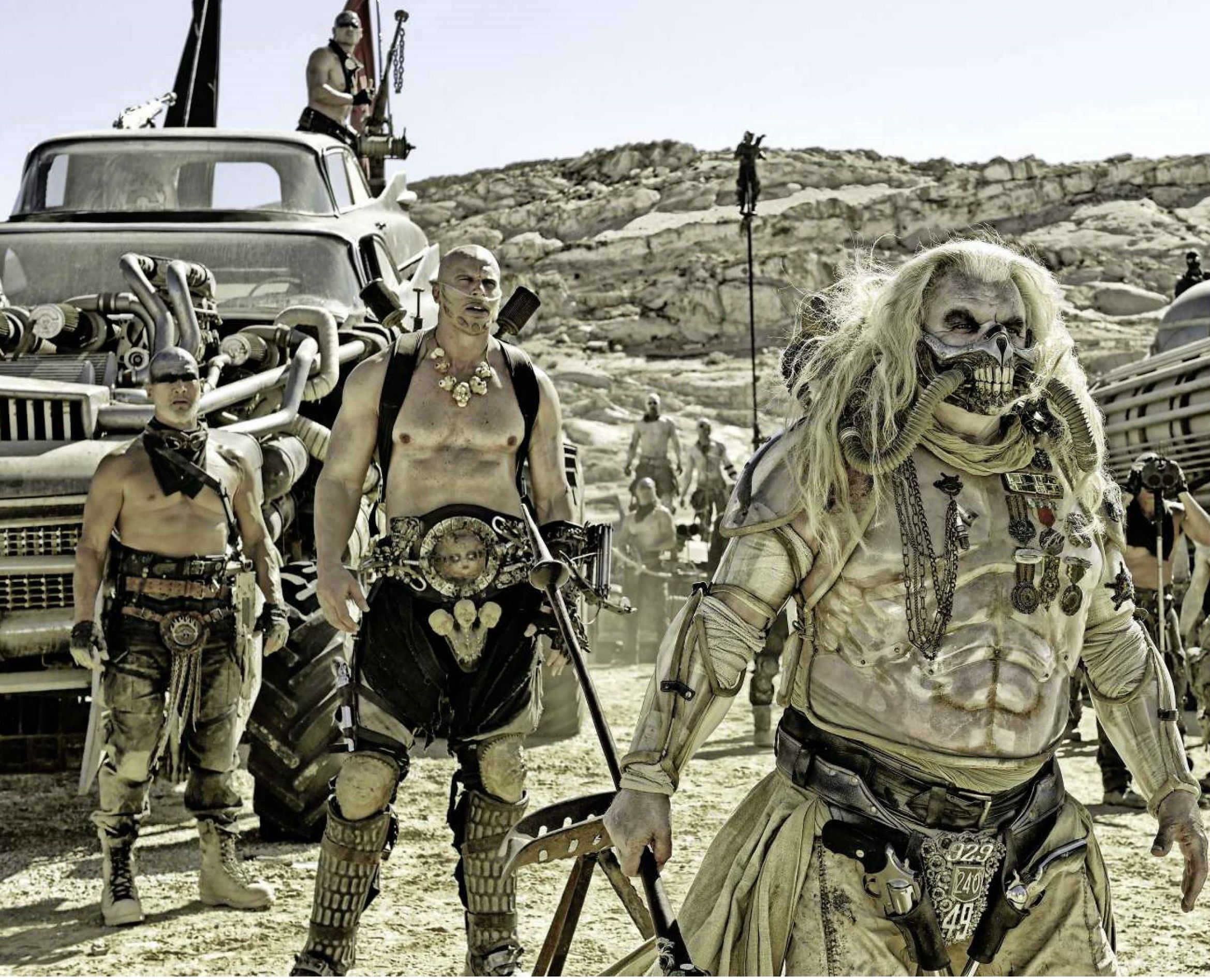In Mad Max (1979), George Miller’s original dystopian vision of the future, and his post-apocalyptic sequel, water and petroleum are in short supply, making them the most sought-after commodities on Earth (this was a fairly original premise in the late ’70s) and civilisation reverts to tribal warfare over the rights of ownership to these materials. Little has changed in this endlessly delayed and much anticipated continuation of the franchise – but human life itself has been added to this list of desirables.
Same old dust
Former highway patrolman Max (Hardy – originally played by Mel Gibson) is incarcerated and used as a ‘bloodbag’ by a tyrannical, white-haired dictator named Immortan Joe (Keays-Byrne) and his army of ‘Warboys’.
In a bid to escape, Max teams up with Furiosa (an outstanding Theron, dust-covered and head-shaved), a one-armed female who is attempting to free five former female captives, aka the Five Wives or ‘Breeders’ of Immortan Joe. Stealing a giant gas-guzzling war machine on wheels, the gang race across the desert in a bid to reach a fabled ‘land of green’ before Immortan and his convoy of Warboys can catch them.
Miller’s crossing the line?
The original films (or rather the first two), made on a mere sliver of Fury Road’s budget, had the same raw electricity as many 70s/80s genre films forged in the fires of enthusiasm rather than money. There was a sense of the safety net being absent: that literally anything might happen and the filmmakers were crazy enough to do it. Is it possible to recreate that?
The answer is a resounding YES. Miller has crafted scenes here of chaotic road carnage so memorable and genuinely mental, you might question his health and safety regime – but never his mastery of the medium. When a Warboy emerges from a dust cloud, on top of a speeding desert vehicle, bashing the strings of his flamethrower guitar, you know subtlety is off the menu and this is an audaciousness that deserves standing ovations.
Strong Hardy performance
Tom Hardy is one of the finest, most versatile young actors working in film today. If Mad Max is to continue as a franchise, it’s hard to imagine a better man carrying the torch, first lit by Gibson all those years ago, than he.
However, despite Hardy looking the part, if the film has a weakness, it’s that he is denied the opportunity to flaunt the kind of charisma that made Gibson’s take on the character so winning. For the better part of the running time, Max is along for the ride, rather than a proactive participant in the unfolding narrative.
Hardy gets barely a page worth of dialogue in the entire film. In fact, dialogue is sparse throughout, with a soundscape that rightly prefers to emphasise engine roars and marry its soaring score with epic, operatic spectacle – leaving Hardy with a tendency to disappear into the scenery.
More mad than Max
All of this means that while Mad Max: Fury Road is a triumphant return for writer/director George Miller’s franchise, it is a better film in its own right than a sequel to what went before. We get ‘Mad’ in spades, while fans of the franchise may be disappointed at the lack of ‘Max’.
So hopefully there’ll be another chance for Hardy’s Max to spend a little less time in the passenger seat and more at the wheel.
Mad Max: Fury Road
★★★★★
Dir: George Miller; Aus/US action, 2015, 120 mins; Tom Hardy, Charlize Theron, Nicholas Hoult, Hugh Keays-Byrne, Rosie Huntington-Whiteley
Premiered May 14
Playing nationwide















